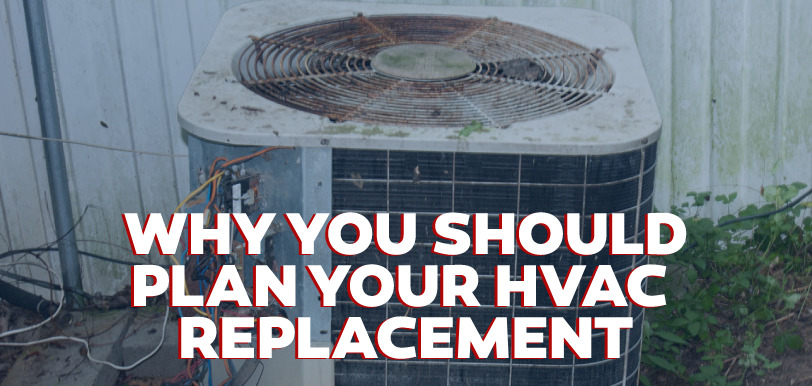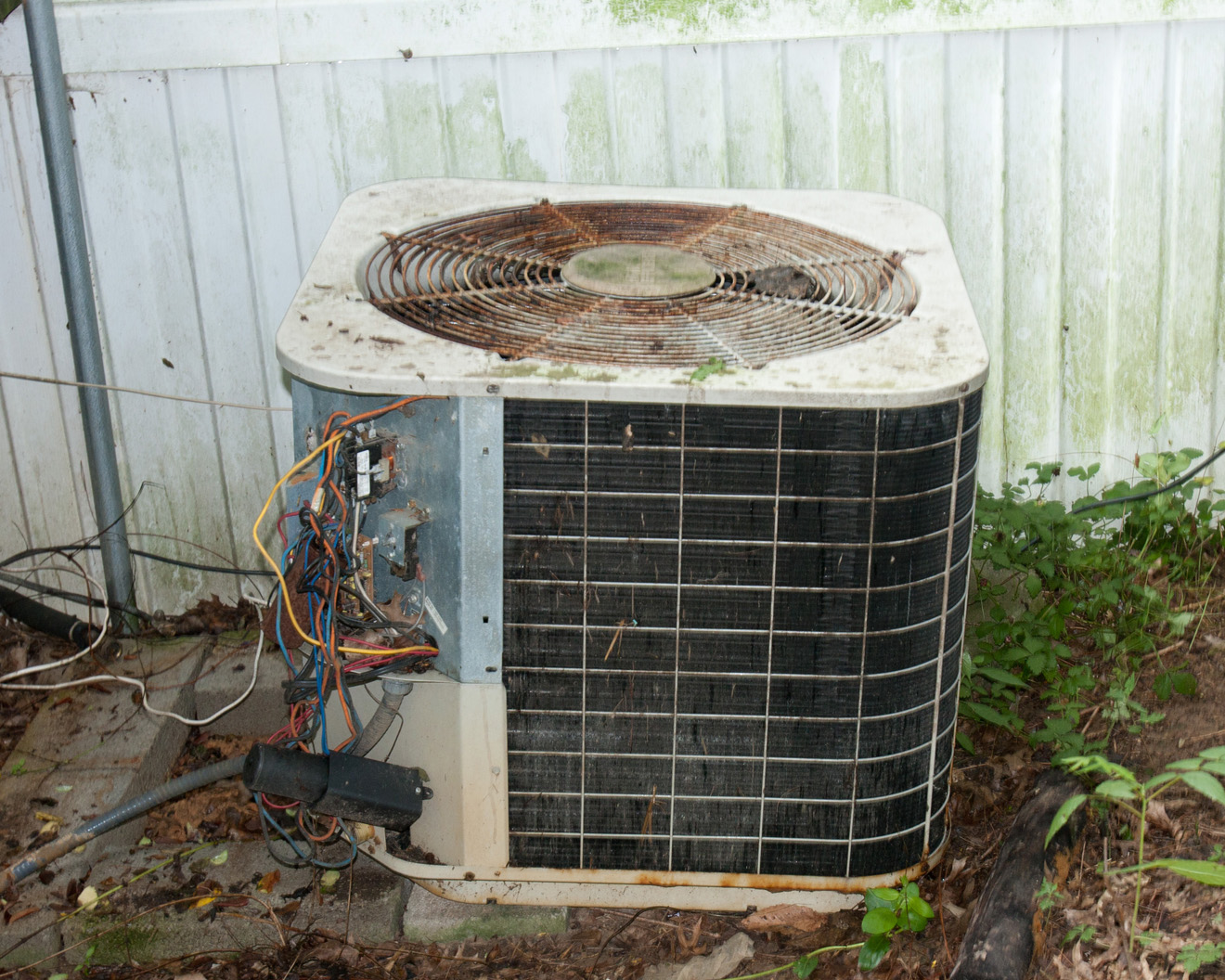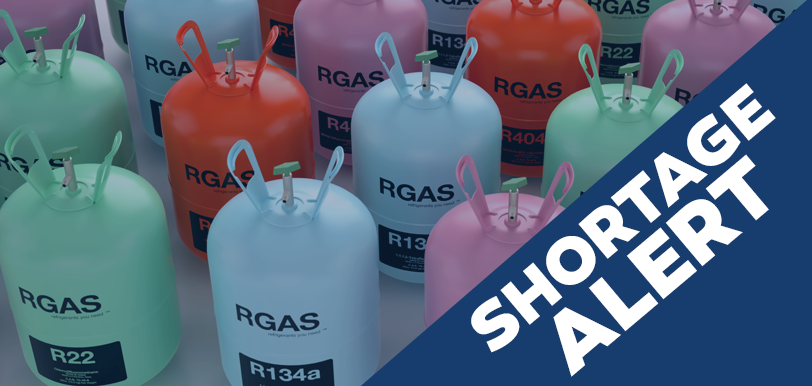Want to save with Paschal? Don’t miss our current offers and specials

Want to save with Paschal? Don’t miss our current offers and specials
Return to Paschal Resource & Education Hub

For most of us, the only time we give our air conditioner any thought, is when it suddenly fails, and leaves you in a muggy, unbelievably hot house. When this happens, you’ll rush to find an HVAC company to come to your home, and hope they provide a quick & easy fix. However, sometimes these “quick & easy fixes” can’t actually be completed easily, quickly, or even cheaply. In fact, sometimes the HVAC company can’t come out AT ALL, because during the dog days of summer, many more poor souls are also experiencing the same exact thing. This extreme surge in demand means that ultimately, not every single customer can be helped during these peaks. This is why we highly recommend planning your air conditioner replacement – but what exactly does this mean, and what is the process?
When it comes down to it, the best time to replace your air conditioner or HVAC system is before the summer or winter surge, so early-mid spring or fall. During this time, HVAC companies typically have less demand right before temperatures rise or plummet. It’s also better to replace it whenever the cost to replace your aging HVAC system is more feasible than multiple larger repair bills.
Due to logistical problems compounding over the last few years, HVAC equipment and parts have become more and more scarce as the demand for them increases. Manufacturers and logistics companies are struggling to meet this rising demand, and the result has been that many companies and customers across the country are left without ETAs on new equipment, or have been left waiting weeks or even months for parts to arrive.
When the average temperatures rise, and the summer heat hits – most home owners run their air conditioner 18-24 hours each and every day, for weeks & months on end. This cycle, coupled with a lack of routine maintenance or pre-summer check ups usually spells a recipe for disaster when a component of your HVAC system bites the dust. For most systems, especially ones older than 10 years, this combination of zero-to-one hundred means early and frequent failures, and a high likelihood of your system going out during the hottest days of summer. To prevent a disaster like this, it is best to schedule a pre-summer tune-up or maintenance check in the Spring, so that you can uncover any major problems that may arise over the coming months, and so that you can plan your finances going into the year.
Many HVAC equipment manufacturers have determined that most HVAC system are designed to last an average of 10-15 years, and then you should start considering replacing your equipment. This is especially true if you have to keep pouring money into your system every year for repairs. Every few years, energy standards are updated, and many older units do not meet the energy efficiency codes of today. Refrigerant is also a major factor. The United States government has phased out R-22 refrigerant as of 2020, and most systems manufactured before 2010 use R-22. This refrigerant is currently in high demand, with very low and limited supply, as it is no longer being manufactured due to environmental concerns. As of today, only up-cycled R-22 is available, and at a premium price. If you discover that your system needs a repair or recharge involving R-22, you may be better off planning to replace your older system with a newer R-410a compatible unit.

This year alone, we have seen multiple price increases on air conditioning units, equipment, and parts due to a multitude of factors, including increased raw material costs, increased labor rates, fuel and transportation costs, and changes to processes. Over the last several years, we have regularly seen manufacturer price increases once per year, but COVID-19 has especially hit the industry hard, as many of us have witnessed price increase announcements of major suppliers and brands at least once per quarter. With such volatile pricing, it is best to plan on upgrading your system as soon as possible, so that you can take advantage before the price hikes take effect.
R-22 refrigerant was scheduled by the EPA to be phased out by the year 2020. This is currently in effect, and R-22 is no longer being produced or sold, and it is illegal to manufacture or import R-22 in the United States. For HVAC units manufactured before 2010, this is especially concerning, as the availability of R-22 in the market is very scarce, and as such, prices for the refrigerant have skyrocketed in the last few years. Not only is R-22 expensive, but it has been shown to cause more environmental & ozone damage than other refrigerants, and therefore, you should be encouraged to upgrade to a newer, more environmentally friendly system.
For much of 2021, we have seen price increases and shortages on a number of commodities & products, many of them linked to the same core commodity shortages amidst unprecedented demand. Like many other industries around the world, the HVAC industry in particular has felt the compounded effects of supply chain disruptions this year. While some analysts predicted a smoothing over of some logistical problems by the end of 2021, it does not seem to be the case for the refrigerant market – which is just one key aspect amongst many that homeowners will feel the impact of. There are a number of factors affecting these price hikes & shortages, that do not primarily include logistical snags.
Presently, China is experiencing a temporary shortage of components that make up R410a refrigerant. The overall shortage is compounded by the demand increase during the summer months, and it is affecting both after-market and OEM suppliers. In addition, major refrigerant manufacturers DuPont, Chemours, and Honeywell have dramatically scaled back production in 2021 due to supply chain and logistical constraints.
Due to the increased demand for refrigerants by the HVAC industry, wholesale costs have risen dramatically for service based companies, and these costs will likely be passed down to the end consumer- most of which are your average homeowner. Expect increases in service fees, and new system costs. If you’re shocked by the increase in prices for groceries on the shelf, & the cost to fill your car with gasoline, then expect that same energy with an increase in refrigerant prices. Since many businesses such as grocery stores also rely on refrigerants to keep food cold in stores, you may be seeing the cost both at home and in your daily errands.

During the 1990s, the Department of Energy mandated energy efficiency standards for HVAC systems across the United States. These standards are identified across systems by the use of SEER (Seasonal Energy Efficiency Ratings). The current minimum standard SEER for air conditioners is 14 in the Southeastern United States, and in Arkansas, though most air conditioners have a SEER that ranges from 14-21. The federal government is constantly raising the minimum standard, so if your unit is older, it may no longer meet the minimum standards for efficiency, which means that you end up paying more money to cool & heat your home.
If your air conditioner is on its last leg of life, then waiting until the last possible moment to replace your system could end up costing you in more ways than one.
Planning to replace your air conditioner shouldn’t be a troubling or time-consuming process. Make the switch easy, and avoid the hassle by calling Paschal.